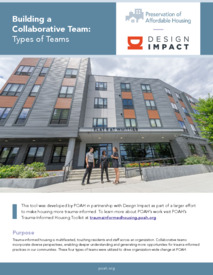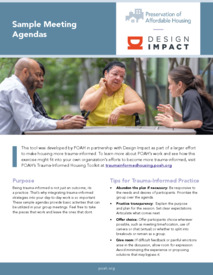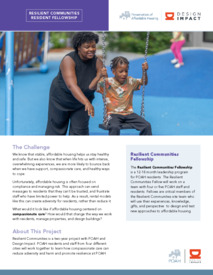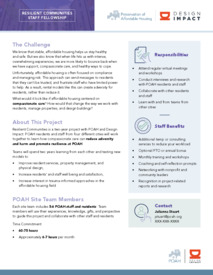A collaborative team allows stakeholders with diverse experience to work together to drive change. In a Trauma-Informed Housing model, any group that is making decisions about a community should include members of the community, such as residents and frontline staff.
Why It’s Important:
Trauma-Informed Housing affects residents and staff. By incorporating diverse perspectives, we can develop a deeper understanding and generate more opportunities for trauma-informed practices in our communities.
What We Learned:
-
Value lived experience as a form of expertise. Recognize that the community, whether residents, frontline staff or broader community members, are experts in their own lives. Center their voices.
-
Recruit teams that have shared geography. Participants can flex their expertise and apply it to their own backyard.
-
Compensate people for their time. Time is valuable and costly. Appreciate people for showing up by compensating them.
-
Utilize team-based peer learning. This allows participants to learn, discuss and apply what they are learning about trauma-informed care in a trusted setting.
Helpful Tools:






